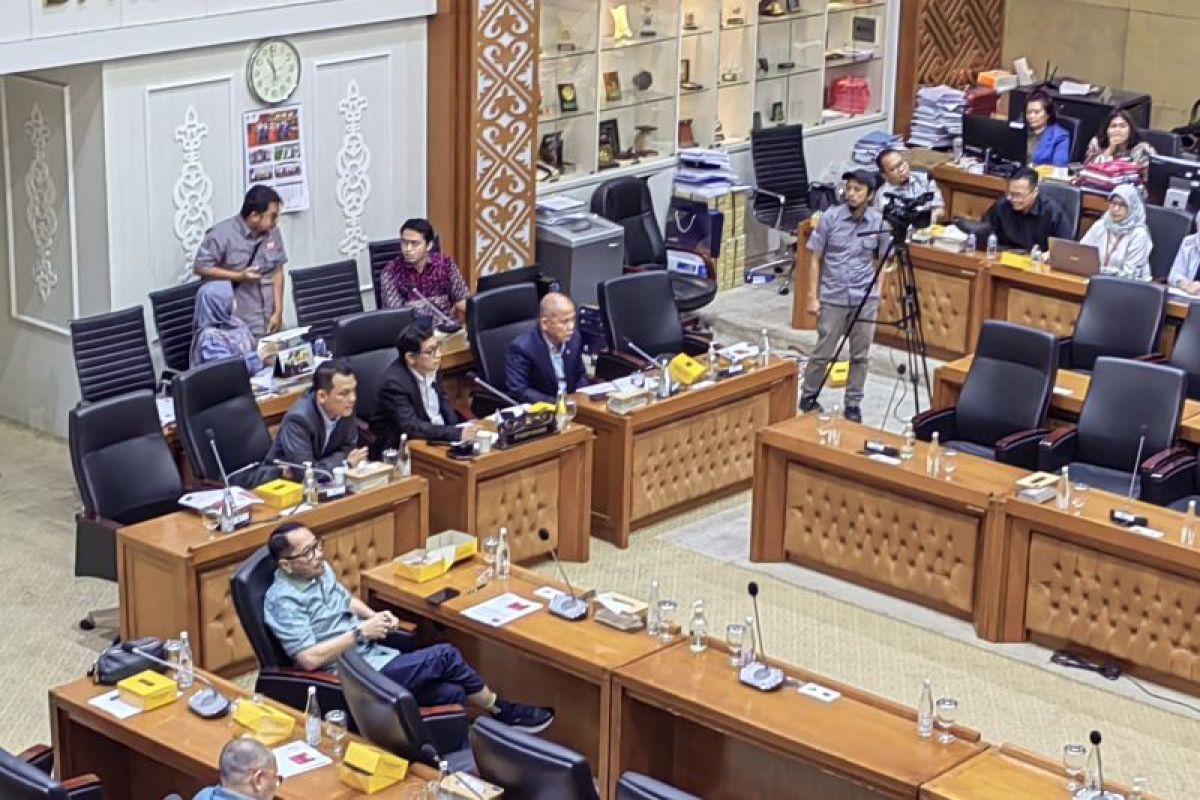During the 2024-2025 period of the Indonesian House of Representatives (DPR), the PPRT Bill was included in the 2025 Priority National Legislation Program (Prolegnas) list, following the DPR Legislative Body's recommendation.
Though initially not decided to be carried over from the previous term, the bill was finally discussed again in public hearings (RDPU) held by the DPR involving several civil society coalitions since May 5, 2025.
Earlier, President Prabowo Subianto promised to immediately complete deliberations and ratify the PPRT Bill within the next three months during the commemoration of International Workers' Day on May 1, 2025.
PPRT Bill's implications for care work
The drafting of the PPRT Bill aims to protect and fulfill the rights of domestic workers working in the informal sector by providing them equal recognition.
The bill's passage is expected to have implications for several other aspects, including the state's recognition of care work, which has not been viewed as productive and economically valuable in Indonesia.
Lack of public awareness of this issue often arises from the misinterpretation of domestic work, such as cooking, childcare, cleaning, and elder care, which tends to be associated more with women.
This seems to create the perception that care work does not contribute to the national economy, when in fact, it supports the productivity of individuals and households, backing economic development and social welfare.
In 2024, the Ministry of Women's Empowerment and Child Protection, in collaboration with the National Development Planning Ministry and the International Labour Organization (ILO), launched the 2025-2045 Care Economy Roadmap, addressing seven priority issues.
The roadmap is expected to encourage the realization of an inclusive and fair employment ecosystem for all.
The then Minister of Women's Empowerment and Child Protection, Bintang Puspayoga, noted that the recognition of care work could reduce the gender gap by raising women's labor force participation rate.
Pribudiarta Nur Sitepu, Deputy for Fulfillment of Children's Rights at the Ministry of Women's Empowerment and Child Protection, also acknowledged that the low labor force participation rate among women compared to men in Indonesia is linked to childcare responsibilities, as many women with children often choose to temporarily leave their jobs to care for their children.
Citing data from Statistics Indonesia (BPS), he stated that Indonesian women's labor force participation remains significantly behind men's — currently about 60 percent for women versus 86 percent for men — with no increase over the last 20 years.
Furthermore, recognizing care work is expected to encourage the creation of new jobs, thereby reducing Indonesia's unemployment rate, as individuals who perform care work will be officially acknowledged as workers with legitimate employment.
To this end, the law on domestic workers' protection could serve as a starting point for officially recognizing care work since domestic work is part of it.
Awaiting certainty
As July nears its end, the bill's ratification, promised by President Prabowo within three months from May 1, is expected by August 1.
However, Chair of the DPR Legislative Body, Bob Hasan, noted that this three-month timeframe did not account for the DPR's work calendar.
He explained that the DPR has a recess period for legislators to visit their respective electoral regions to gather public input.
Yet, unlike legislators, many domestic workers in Indonesia may not have fixed working hours or rest periods, requiring them to work even on weekends or public holidays.
Moreover, amid the current wave of layoffs, Indonesian women are the most vulnerable group at risk of losing their jobs based on performance productivity evaluations due to the double burden they shoulder as they are expected to carry out household care work that is not recognized as productive or economically valuable.
The National Human Rights Commission (Komnas HAM) has called for the prompt passage of the PPRT Bill, describing it as a constitutional obligation.
Enacting this long-pending bill is a vital step to fulfill Indonesia’s human rights obligations, ensure justice, and provide maximum protection to vulnerable groups.
Therefore, strong political will from the DPR is essential to ensure the swift completion of the deliberations and drafting of the PPRT Bill to provide certainty for the protection and rights of domestic workers, who have been in a vulnerable position for decades.
Furthermore, the PPRT Bill's passage will bolster the state's commitment and pave the way for recognizing care work, which can boost the economy, shift people's perspective on care work that has traditionally been associated with women, and offer fairer opportunities for women in the labor market.
Translator: Melalusa Susthira, Raka Adji
Editor: Primayanti
Copyright © ANTARA 2025











